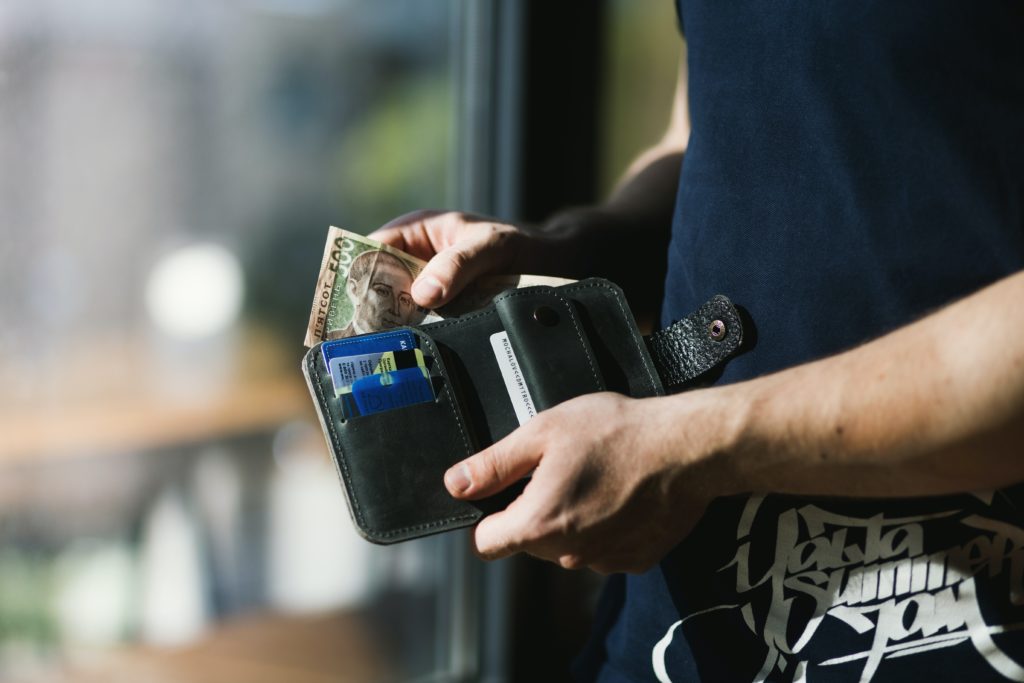Buy now pay later schemes expose the dangers of living on credit
Access to credit has never been easier as finance providers such as Klarna help you spread payments, but the chances of dropping into debt are real

There has been an explosion in buy-now-pay-later services such as Klarna, Clearpay and LayBuy in the UK recently. Nearly every retail website you visit now offers an option at the checkout to shop now and spread the payments, with little background checks required. While it can seem like an attractive way to budget, the increasing popularity of these schemes is causing problems for many shoppers who find themselves facing rising levels of debt.
It is estimated that 4% of all payments made in the UK are now done so with buy-now-pay-later schemes. Data from The Woolard Review suggests that younger shoppers and women are most likely to use such services, with 75% of users under the age of 37 and 75% of all users women. It would also seem that people using these services are doing so for discretionary items, with 90% of transactions involving fashion and footwear.
Seemingly simple terms that allow you to spread a payment over a set number of months or defer payment for 30 days, with no interest added, can seem attractive. However, it is easy to get into hot water living on credit. A purchase made through a buy-now-pay-later scheme can seem manageable, as long as your income remains steady, but if you lose your job and are unable to stick to the payment schedules, that’s when the big charges come into play and you can find yourself in debt.
Many people have also struggled with overspending when online shopping; stacking up numerous buy-now-pay-later purchases only to realise, too late, that they all need to be paid back simultaneously, which leads to defaulting on payments.

Know what you’re signing up for
Some buy-now-pay-later schemes that offer ‘free’ financial services actually charge as much as 20% interest on amounts not paid within the interest-free time period. If you can stick the repayment schedule it can be a useful tool, but if you slip up it can kickstart a spiral of debt and negatively impact your credit score, making it harder to get access to credit in the future. A good question to ask yourself is: would I be better off saving up for three months and waiting to buy this, rather than risking falling into debt?
Gambling with your finances in this way can be particularly dangerous for those on tight or fluctuating budgets due to low income or irregular hours, or for those claiming Universal Credit. Though it can seem overwhelming, reading the terms and conditions fully before committing to any financing option is always advisable, as at least you will know what you are signing up for and if it is right for you.
Though schemes such as Klarna, Clearpay and LayBuy have been grabbing headlines, the problem with living on credit is not a new one. Our society is built on buy now pay later: mortgages, car loans, credit cards, overdraughts, store cards. This latest iteration is just more Instagram-friendly; although increasingly influencers like Oghosa Ovienrioba (@SincerelyOghosa) are pledging to no longer promote such schemes to their followers.
Budgeting is always better than borrowing
An old-school method of controlling your spending is to only deal in cash, setting out an exact amount for the week, as studies have shown we are more than twice as likely to overspend when using a debit or credit card. However, as we become an increasingly cashless society and rely ever more heavily on internet shopping – especially in lockdown – this can seem unrealistic. Instead, what you can do is set a spending limit on your credit card so that once you hit it, you won’t be able to use the card again until the balance resets.
If you do use a credit card, or rely on other cash-in-advance methods such as pay-day loans, it is important to ensure you make repayments on time – just as it is with buy-now-pay-later schemes. You also shouldn’t rely on just getting by with minimum payments, as interest will continue to be added to your bill and a growing debt can quickly overwhelm your finances.
Seeking help with debt
Navigating your finances and budgeting for the everyday is tough, and the best advice is to talk about it. It is often the secrecy and embarrassment around financial health that gets people into trouble. Speak to family and friends if you are struggling or seek advice at a debt charity, such as StepChange, which can offer free budgeting advice or debt resolution guidance.
Though falling into debt – whether caused by shopping with buy now pay later, or any other method of living on credit – can leave you feeling out of control and overwhelmed very quickly, the only way to address the situation is to face up to it. No matter how hard you wish, the problem won’t disappear, so make sure you seek help and advice on how to move towards a more money-positive future.





